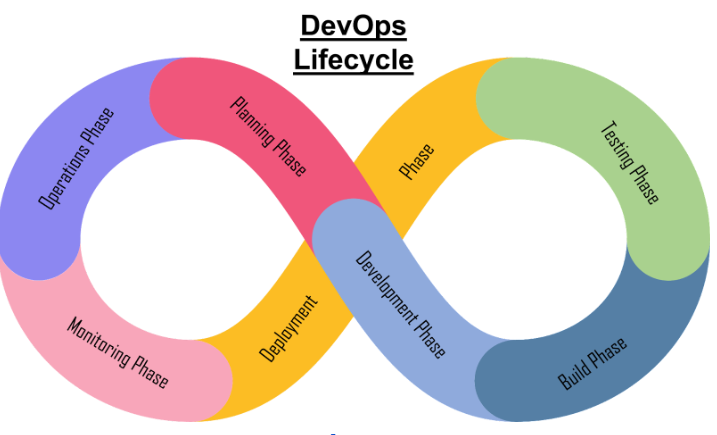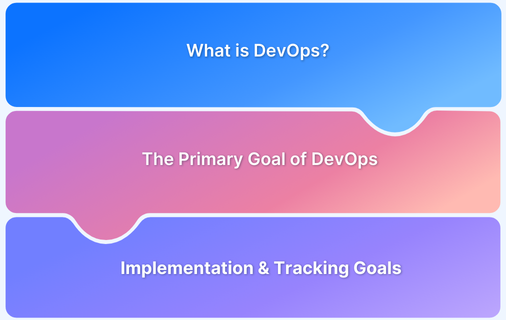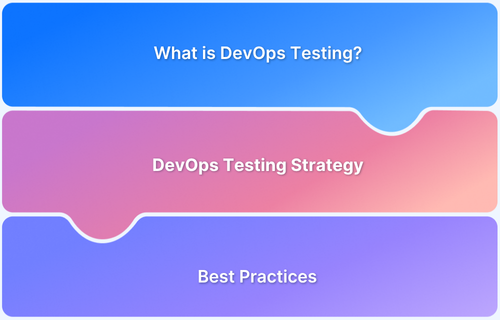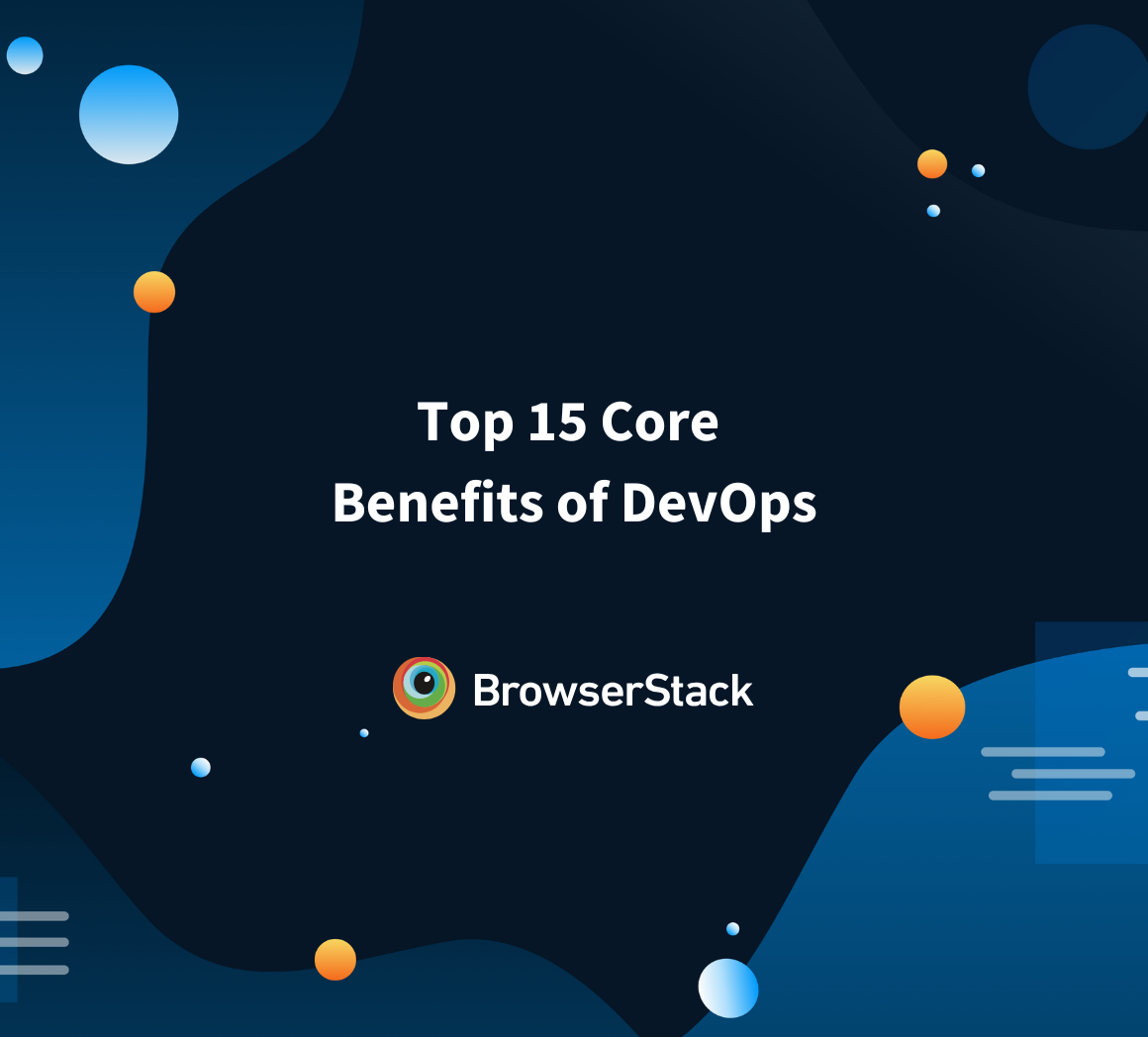Python plays a crucial role in modern DevOps workflows by enabling fast, reliable automation and seamless tool integration.
Overview
Python is a key player in DevOps, valued for its simplicity, flexibility, and extensive libraries. It is widely used for automating tasks, managing infrastructure, and integrating CI/CD pipelines, making it the preferred language for automation.
Python’s Role in DevOps:
- Infrastructure Automation: Automate server provisioning and configuration using Python scripts or frameworks like Ansible (written in Python).
- CI/CD Pipeline Scripting: Write custom scripts to trigger builds, run tests, or deploy applications across environments.
- Monitoring and Logging: Build custom monitoring tools or log analyzers using libraries like psutil, loguru, or Prometheus clients.
- Configuration Management: Handle config files, YAML/JSON manipulation, and environment setups effortlessly.
- Cloud Automation: Interact with AWS, Azure, or GCP services using SDKs like boto3 (for AWS).
- Testing Automation: Write test cases using pytest, unittest, or integrate with Selenium for web testing.
- Container and Orchestration Management: Automate Docker and Kubernetes tasks using Python APIs or CLI wrappers.
- Security and Compliance Checks: Build tools to scan code, analyze vulnerabilities, or enforce security policies.
This article explores Python’s pivotal role in DevOps, its use cases, and how it contributes to the success of CI/CD pipelines.
Understanding Python for DevOps
Python is a popular programming language known for being simple, flexible, and packed with useful libraries. It helps automate tasks, streamline processes, and improve collaboration between development and operations teams. Python’s easy-to-read syntax and compatibility with many tools make it a key part of DevOps workflows.
In CI/CD pipelines, Python is invaluable for automating testing, deployments, and monitoring. Tools like Fabric, Ansible, and PyTest allow teams to handle repetitive tasks, manage infrastructure, and ensure smooth software delivery.
With its cross-platform compatibility and strong community support, it is a reliable choice for solving DevOps challenges, helping teams work faster, reduce errors, and deliver high-quality software efficiently.
Why should you use Python For DevOps?
Python offers a powerful combination of simplicity, flexibility, and integration capabilities, making it an ideal choice for streamlining and automating DevOps processes.
- Python is an extremely popular high level scripting language that is used widely in the fields of web development, data analysis, data science, mobile app development, and game development.
- It has extensive libraries which can be utilized for a wide variety of functions.
- Python is popular for writing automation scripts and can be used with highly popular open source tools such as Selenium and Appium to write sophisticated automation scripts.
- Python has a great supportive community, and there are a lot of forums, guides, and tutorials to aid programmers.
- Python has gained popularity for also being very useful for data visualization. Libraries such as seaborn and matplotlib can be used to create aesthetic visual figures and graphs.
- Python is excellent for implementing machine learning, and has a wide variety of specialized ML libraries such as TensorFlow and SciPy.
- All Linux systems come pre-bundled with Python, making it a defacto go-to scripting language on these systems.
- Python can be used across different development testing and production environments, making it very productive for DevOps Processes.
By integrating Python-based automation with tools like BrowserStack Automate, teams can efficiently run cross-browser tests within CI/CD pipelines and ensure robust, high-quality releases across real user environments.
Python Scripting Fundamentals for DevOps
A strong grasp of Python scripting fundamentals is essential for implementing automation and managing workflows in DevOps environments. DevOps engineers use Python to write scripts that interact with system processes, configure environments, deploy code, and integrate tools across the CI/CD pipeline.
Key Python Concepts Useful in DevOps:
- Working with Files and Directories: Use Python’s OS, Shutil, and Pathlib modules to automate log parsing, config file management, and system cleanup.
- Subprocess Management: Use the subprocess module to execute shell commands, automate CLI-based tools, and manage external processes programmatically.
- APIs and HTTP Requests: Python’s requests library allows seamless integration with REST APIs (e.g., cloud services, CI/CD tools like Jenkins or GitHub).
- Exception Handling: Implement robust error handling to ensure automation scripts are fault-tolerant and recover gracefully from failures.
- JSON/YAML Parsing: Manage configuration files and handle structured data using the built-in json module or third-party libraries like PyYAML.
- Scheduling and Delays: Use modules like time, schedule, or apscheduler to manage job scheduling or introduce wait times in scripts.
- Environment Variable Handling: Access and manage system environment variables using the os.environ dictionary for secure and dynamic script behavior.
- Virtual Environments and Dependency Management: Isolate environments using venv or tools like pipenv to manage dependencies for specific DevOps tasks or projects.
Mastering these fundamentals allows DevOps professionals to write efficient, reusable scripts that automate tasks ranging from deployment orchestration to log analysis, improving both productivity and system reliability.
Python in CI/CD Pipeline Automation
Python is pivotal in automating Continuous Integration and Continuous Deployment (CI/CD) pipelines. Its scripting capabilities, integration support, and ease of use make it ideal for customizing and extending pipeline workflows.
DevOps teams use Python to automate build, test, and deployment stages, ensuring faster delivery cycles and consistent software quality. Whether using Jenkins, GitHub Actions, GitLab CI, or other CI/CD platforms, Python scripts can be embedded to streamline operations.
How Python Supports CI/CD Pipeline Automation:
- Build Automation: Write scripts to compile source code, manage dependencies, and package applications for different environments.
- Test Execution and Reporting: Integrate Python-based test frameworks like pytest or unittest to run automated tests and generate reports within the pipeline.
- Artifact Management: Automate the upload or retrieval of build artifacts from repositories like Nexus or Artifactory using REST APIs.
- Deployment Scripts: Use Python to push code to servers, update Docker containers, or interact with orchestration tools like Kubernetes.
- CI/CD Tool Integration: Interact with tools like Jenkins, GitHub Actions, or GitLab via their APIs to trigger jobs, monitor status, or configure pipelines.
- Notification and Logging: Automatically send alerts (via email, Slack, etc.) and log results during pipeline execution using Python’s logging and communication libraries.
- Dynamic Configuration Handling: Modify environment-specific variables, config files, or secrets during deployment to support multi-environment deployments.
Example Use Case: A Python script can be used to:
- Trigger a Jenkins job using the Jenkins API.
- Monitor the build status.
- On success, deploy the build to a staging server and notify the team on Slack.
By integrating Python into CI/CD pipelines, teams can achieve greater flexibility, reliability, and control over software delivery processes.
How to use Python for DevOps Processes
Python is versatile and can be used in multiple stages of the DevOps lifecycle, from continuous monitoring to deployment.
Source: slidesgo
Following are some of the key uses of Python in the phases of the DevOps lifecycle:
- Planning
Python has several libraries which make it particularly well suited to gather important statistics for the software during the planning and information gathering phase. Automation tools can be programmed to gather statistics, perform data cleaning, data manipulation, data analysis, and to create data visualizations.
- Development
Python can be used to write scripts which can configure tools, and automate tasks. In addition to this, Python has modules which make it easy for developers to interact with, and carry out tasks in databases such as SQLite, MySQL, MongoDB, and PostgreSQL. Python can also be used to interact with version control systems through the Gitapi module. Lastly, the ability of Python to be used across various development environments, and the availability of modules such as OS and subprocess to interact with the underlying operating system and spawn child processes can be very useful to developers.
- Build and Testing
Python can be used to write automated scripts to help with the build automation process. Testing frameworks like Selenium and libraries like pytest can be used to write complex and highly effective automation test scripts in Python. Additionally, if Django is used in the development phase then the built-in testing framework in Django can also be utilized.
Read More: Top 8 Python Testing Frameworks in 2023
- Deployment
Python can also be used to script the deployment programs. Additionally, it can assist with the deployment, configuration, and management of the applications from the development phase to the testing and production environments. Purely written in Python, configuration management tools like Ansible can be made more productive by writing additional custom modules in Python.
Python’s well-known Cuisine and Fabric modules are very popularly used in DevOps for the deployment phase.
- Monitoring and Operations
With the aid of Python, scripts that can be used for automation of daily monitoring tasks can be written. These scripts can have the additional functionality of generating and sending out notifications to all relevant parties in case of any issue/error found.
Python also has cross-platform libraries for process and system monitoring, such as psutils which can be highly helpful to monitor and check for any inconsistencies or errors during the development, build, testing, and deployment phases. Python scripts can be written to routinely check drivers, network devices, and also to automate any sysadmin tasks.
Popular Python Libraries and Tools to Automate DevOps Processes
Some of the popular Python Libraries and Tools that are used for DevOps Automation in Python are:
- Pandas
- Selenium
- Pytest
- Beautiful Soup
- Jenkins
- SciPy
- Behave
- Ansible
- BrowserStack Automate
- TensorFlow
1. Pandas
The Pandas module is a highly useful module for data analysis and very popular among data analysts and data science engineers. The Pandas dataframe is capable of efficiently handling large amounts of data and also allows users to gain insights and extract useful information from the data.
2. Selenium
Selenium is a very well-liked open-source Python library renowned for aiding developers design automated test cases which can be executed across different browsers through drivers.Testing the functionality of a button, or carrying out tasks such as filling out a form, navigating a web application, these are all tasks which can be done using sub-modules and drivers with Selenium.
Selenium offers a vast collection of open source tools that are helpful for all types of automation problems. Automation testing frequently takes a long time, creating test cases, carrying them out, and verifying them can be difficult. However the benefits far outweigh the drawbacks. There are so many different browser versions, operating systems, and devices that tests need to be run on, and without automation testing it would be nearly impossible to test on all browser/OS/device combinations.
However this testing is possible through platforms like BrowserStack. BrowserStack’s Cloud Selenium Grid, enables developers to execute automation test scripts on more than 3500+ actual device/browser/OS combinations.
In addition to this, cross browser testing can be done on a wider scale and further optimized with parallel testing, this feature reduces time by executing multiple tasks simultaneously.
Read More: Parallel Testing with Selenium
3. Pytest
PyTest is a testing framework that enables users to write scalable and straightforward test cases. PyTest is well-liked because it has an easy to learn syntax, allows developers to parallely execute multiple tests, and because it is open-source.
4. Beautiful Soup
Beautiful Soup in Python is the most useful module for parsing XML and HTML data in order to obtain useful information. Filtering the HTML data by tags and gleaning statistics regarding the website are all easily accomplished by using the modules in the BeautifulSoup web scraping library. This library has several versatile uses that allow developers to navigate,manipulate, and extract data from applications efficiently.
5. Jenkins
Jenkins is one of the oldest and most widely adopted open-source CI/CD automation servers, known for its extensive plugin ecosystem and strong community support.
With over 1,800 user-contributed plugins, Jenkins offers exceptional versatility, allowing teams to customize and extend their pipelines to suit a wide range of development and deployment workflows.
Its longevity has also led to a wealth of documentation, tutorials, and active community forums, making it accessible and supportive for both new and experienced users.
Jenkins may be used with Python and is compatible with most popular OS such as Windows, Macintosh, and Linux. Lastly, Jenkins is self-hosted which allows its users to have greater control over customizing and tailoring their CI/CD pipelines according to their needs.
Read More: Jenkins Continuous Integration Tutorial
6. SciPy
The SciPy library is an open-source library used to solve mathematical and scientific problems in Python. This library is built on the Numpy library and therefore builds further on the features offered by Numpy, for example it is able to handle more complex linear algebra and has more features to solve such problems in comparison to Numpy. SciPy contains modules for linear algebra, statistics, image manipulation and processing, numerical integration, optimization, and other problem solving modules required to tackle scientific problems.
7. Behave
Behave is a BDD framework, a behavior driven development framework, which is integrated with automation frameworks such as Selenium. It essentially functions as a layer which defines certain behaviors to be followed in different scenarios when executing automation test cases.
8. Ansible
Ansible is a powerful automation tool that is particularly useful for system management duties. This tool offers straightforward yet effective automation for tasks a system administrator would need to perform on a regular basis. Some of its main functions are performing upgrades, configuration management, and carrying out application deployment. Ansible is written in python, and supplementary scripts can be written in python to extend its functionality.
9. BrowserStack Automate
BrowserStack Automate supports a wide range of frameworks and tools, including Selenium, allowing developers to write advanced test scripts in Python and run them seamlessly on the platform. Its compatibility with Python makes it an effective choice for integrating automated testing into DevOps workflows.
One of its key advantages is parallel testing, which significantly accelerates test execution by running multiple test cases simultaneously. BrowserStack Automate also integrates effortlessly with popular CI/CD tools such as Jenkins, Bamboo, AWS CodePipeline, Travis CI, and more, enabling continuous testing as part of the software delivery process.
The goal in DevOps is to deliver high-quality software quickly and reliably. To achieve this, testing must be comprehensive and reflective of real-world conditions. While emulators and simulators can help in early-stage testing, they fall short in replicating real user conditions, such as low battery states, network interruptions, and unexpected system pop-ups.
This is why teams rely on BrowserStack Automate, which provides access to over 3500+ real devices and browsers, ensuring accurate, scalable testing across diverse platforms and operating systems. It empowers DevOps teams to validate their code in real environments and maintain product quality throughout rapid release cycles.
10. TensorFlow
TensorFlow is an open-source library which was created by Google. Its main functions are to handle deep learning and machine learning. It is additionally used for statistical and predictive analytics. This library is particularly popular among data scientists in order to design advanced problem-solving applications.
The major uses of TensorFlow are for classification, clustering, and prediction. Some common applications of this library are optical character recognition, segmentation, text/image classification, and object detection.
Use Cases of Python for DevOps
Python plays a significant role in DevOps by supporting a wide range of use cases that streamline processes, improve efficiency, and enhance collaboration. Below are some key areas where Python proves invaluable:
1. CI/CD, Infrastructure Provisioning, and Configuration Management
DevOps relies on various open-source tools for tasks like infrastructure provisioning, configuration management, and CI/CD. However, there are situations where these tools’ built-in functionalities may fall short. Python fills these gaps by enabling custom solutions. For example:
- Making API calls to fetch a secret token during deployments.
- Reading a CSV file to extract specific data for application deployment.
- Creating custom Ansible modules in Python when no existing module meets your requirements.
2. DevOps Platform Tooling
In many organizations, central DevOps teams build in-house platforms and tools for internal teams as part of platform engineering. Python is essential in this process for developing utilities and automation scripts to meet platform requirements.
3. Cloud Automation
Python is widely used for cloud automation, with Boto3 being a prime example. Boto3 is a popular Python module for automating AWS cloud tasks. DevOps engineers often use Python to develop Lambda functions and automate infrastructure-related activities in the cloud.
4. Monitoring and Alerting
While most organizations use standard monitoring tools, there are cases where custom solutions are needed. Python makes it easy to create such solutions with relevant SDKs or custom scripts.
- For instance, you can use Python to build a custom autoscaler. A Python Flask application can listen to alerts via a webhook and trigger automated scaling decisions.
5. MLOps (Machine Learning Operations)
Python is widely used in MLOps to bridge the gap between DevOps and ML workflows. Tools like Apache Airflow are common in ML and data engineering pipelines. DevOps engineers often collaborate with ML and data engineering teams to set up and manage these pipelines. For complex use cases, Python simplifies the integration of custom workflows to meet specific needs.
Why use BrowserStack for Continuous Testing in DevOps?
BrowserStack Automate is a powerful tool for Continuous Testing in DevOps, offering seamless integration with CI tools to enhance test automation.
Key advantages include:
- Seamless Integrations: BrowserStack integrates effortlessly with popular CI tools like Jenkins, GitLab CI/CD, and Azure DevOps, allowing teams to incorporate real-device testing directly into CI/CD workflows with ease.
- Real User Environment Testing: Tests are executed on actual browsers and devices, ensuring accurate results and helping identify bugs specific to real-world environments, which are often missed by emulators.
- Parallel Testing: BrowserStack supports running multiple tests simultaneously, significantly reducing testing time and speeding up the software release process.
- AI-Powered Self-Healing Tests: Its self-healing capabilities, driven by AI, adapt to minor UI changes, reducing test flakiness and improving test reliability.
- Scalability: With its cloud-based infrastructure, BrowserStack allows teams to scale their testing efforts up or down as needed, eliminating the need for maintaining extensive on-premise infrastructure.
These features make BrowserStack Automate a valuable asset for optimizing test automation and enabling Continuous Testing within CI/CD pipelines. It empowers teams to deliver high-quality software faster while maintaining flexibility and reliability.
For more details, explore BrowserStack Automate Integrations.
Conclusion
Programming is essential in the DevOps lifecycle and a versatile, efficient, and easy to learn language like Python is representative of everything DevOps stands for.
All DevOps engineers would greatly benefit from learning Python since it can be used at every phase of the DevOps lifecycle. In addition to this several tools such as Ansible are coded purely in Python, and whenever any optimizations or add-ons need to be made to the functionality of the tool it’s best if it can be done in Python.
These factors, as well as the fact that Python can be used across various development and testing environments, make Python a very popular and productive language for DevOps teams.
Frequently Asked Questions (FAQs)
1. Why Should I Use Python for DevOps?
Python is a top choice for DevOps because it is simple, easy to read, and has a large, supportive community. Its rapid development capabilities and extensive libraries make it perfect for automating workflows, integrating tools, and managing infrastructure. Whether you’re automating deployments, running tests, or monitoring systems, Python offers the flexibility and scalability needed in DevOps.
2. Is Python Enough for DevOps?
While Python is great for many DevOps tasks, it isn’t the only tool you’ll need. Python excels in scripting, automation, and integration, but for certain tasks, you may also need other tools or languages. For instance, Bash is useful for shell scripting, and Go is ideal for high-performance applications. A successful DevOps setup often involves combining Python with other tools to best suit your specific workflow needs.
3. How to Use Python for DevOps?
To get started with Python in DevOps, begin by writing simple scripts to automate repetitive tasks like setting up servers or managing configurations. Explore tools like Ansible, which allows you to use Python for infrastructure management. Integrate Python into your CI/CD pipeline by automating test execution with frameworks like PyTest or Selenium. As you become more familiar with Python, you can use its libraries and frameworks to build more complex automation and monitoring solutions tailored to your DevOps environment.









